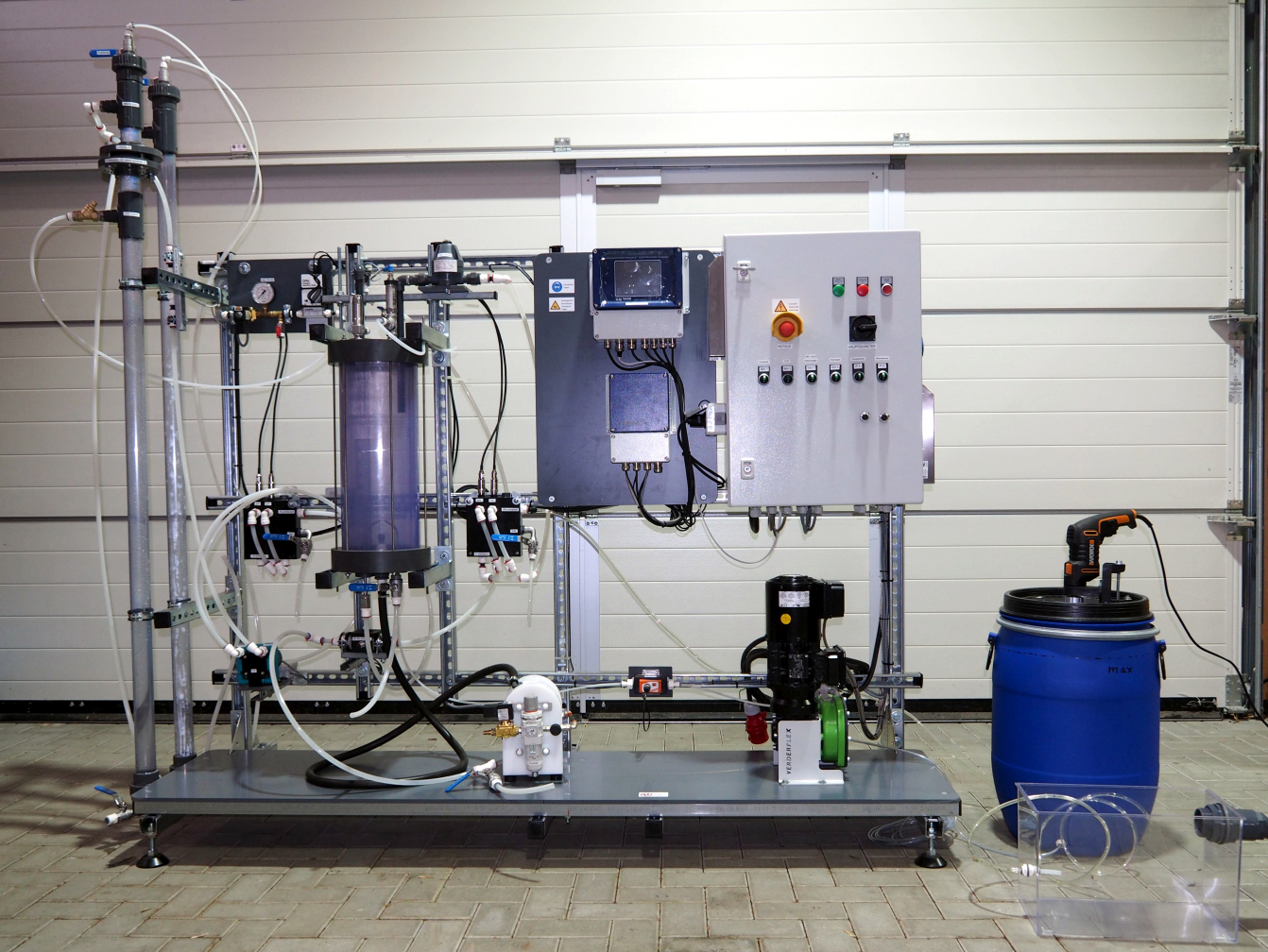DGFZ home -> Departments -> Research -> Geophysics and Monitoring -> Alkalinity reactor for seawater
Geophysics & Monitoring
Alkalinity reactor for seawater
The seawater alkalinity reactor was developed to investigate on a pilot plant scale the extent to which it is possible to increase the alkalinity of seawater using various alkaline solids and carbon dioxide (CO2). The pilot plant makes it possible to study the process of alkalinity increase in seawater under different boundary conditions and thus creates the basis for further field applications of the process.
The seawater alkalinity reactor enables an almost complete mixing or dissolution of alkaline solids or residues or the alkalinely reacting solids in seawater for the production of high concentrations of the aquatic hydrogen carbonate species HCO3-. Residues are all solids based on calcium oxide, calcium dioxide or calcium carbonate (CaO, Ca(OH)2 or CaCO3). The pilot plant was designed in such a way that Mg- or Na-based alkaline solids can also be tested.
An increase in the pH value, that is expected during these solid reactions, is counteracted in the alkalinity reactor for seawater by a dosed addition of carbon dioxide. The decisive factor here is the preparation of a hydrogen carbonate solution.

Project Group Leader
Dr. rer. nat. Susann Berthold
email: sberthold@dgfz.de
Phone: +49 351/4050-673









